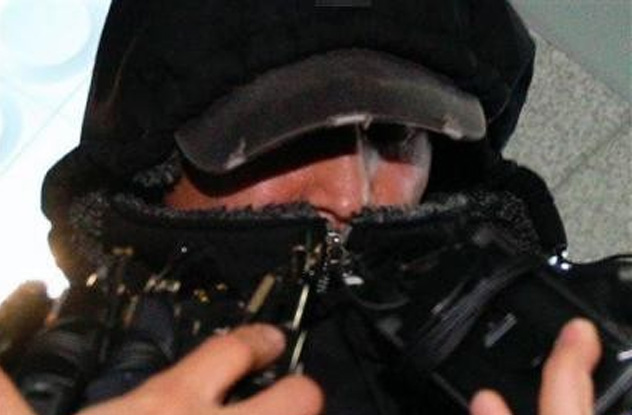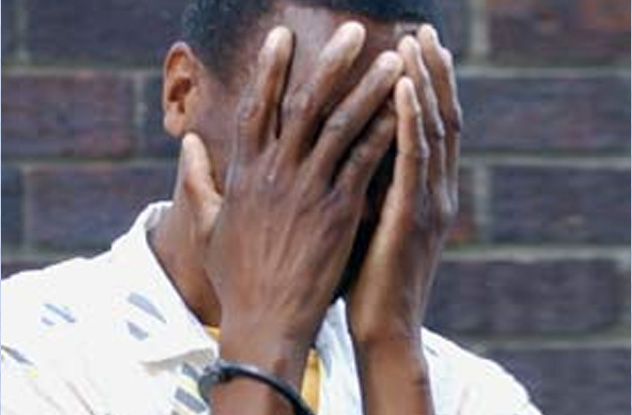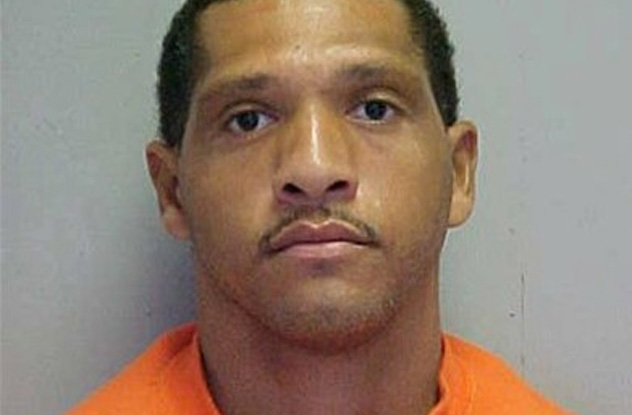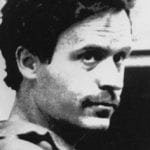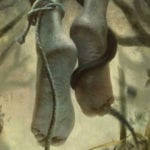10 The Serial Shooter
Phoenix was not a good place to live in 2005 and 2006 because it had not one but two serial killers active at the same time. One of them, dubbed the Serial Shooter by the media, performed drive-by shootings on pedestrians seemingly targeted at random. The killings went on for more than a year before the Serial Shooter was apprehended in August 2006. By then, he’d claimed eight victims but was also considered a viable suspect in dozens of other shootings in the Phoenix area. However, what was most surprising is that the Serial Shooter was actually a team of killers, Dale Hausner and Samuel Dieteman. The pair turned humans into prey and embarked on their own little twisted hunting game. They admitted to keeping score during their killing spree and even had their own special name for it—“Random Recreational Violence.”
9 The Milwaukee North Side Strangler
Walter Ellis had a 21-year killing career before he was finally caught in 2007. During this time, he raped and killed seven women in the city of Milwaukee. He received nickname of the “Milwaukee North Side Strangler” from a local news organization and was somewhat criticized for concentrating his criminal activities to a single area. It is quite possible that he had other victims. His DNA was found on nine female victims, in total. However, since all of them were prostitutes, it is hard to say from DNA evidence alone that he was the killer. At least one woman is thought to have been killed by someone else because she wasn’t strangled like the rest. It took a long time for police to establish a link between all the murder cases. Even when they did, the DNA found on all the bodies didn’t match anyone in the police database. But once Ellis’s name came up, DNA comparison made it easy to determine that he was the man responsible for the murders. Ellis spent only six years in jail before dying of natural causes, and police are still looking into him as a possible suspect for other murders.
8 Zhou Kehua
Zhou Kehua, once dubbed China’s most dangerous man, went on an eight-year-long rampage between 2004 and 2012, killing as many as nine people. His primary motivation was financial—he would find people leaving ATMs or banks and then shoot and rob them. The extent of his crimes is not fully known. He spent his time traveling through multiple Chinese provinces and likely committed murders and robberies in most of them. It is certain that he is responsible for shootings in the Jiangsu and Hunan provinces, as well as the city of Chongqing where the ruthless killer finally met his demise. After being the target of a large-scale manhunt, Kehua died in a shootout with police in Chongqing once an anonymous tipster revealed his whereabouts. Two plainclothes officers tried to approach him, he opened fire, and the officers gunned him down.
7 The Crossbow Cannibal
The media referred to Stephen Griffiths’s murders as the “crossbow cannibal killings,” and when he appeared in court in 2010, he proudly gave his name as “the crossbow cannibal.” Between 2009 and 2010, Griffiths killed three prostitutes with crossbow shots to the head in Bradford, England. Afterward, he claimed that he cut off parts of their bodies and ate them while getting rid of the remains. Police are also looking into Griffiths as a possible suspect for other murders, as he once claimed in an interview that he killed six people. Stephen Griffiths was a killer in the making ever since he was a teenager. At 17, he was sentenced to three years after attacking someone with a knife. Even back then, he confessed that he fantasized about killing people and even predicted that he would end up going on a killing spree. He ran a website detailing his admiration for other serial killers. He was fascinated with Bradford’s other notorious serial killer, Peter Sutcliffe, the Yorkshire Ripper.
6 Kang Ho Sun
Kang Ho Sun killed at least 10 women between 2006 and 2008 in the Gyeonggi Province of South Korea. He picked them up in bars or at bus stops, raped and killed them, and then dumped their bodies in the woods near the city of Ansan. DNA evidence connected him to eight murder cases, and he confessed to the killings. However, police suspect that he is responsible for more murders and are looking into disappearances in the region. Curiously, Kang Ho Sun was convicted of a further two murders, those of his wife and mother-in-law, but he vehemently denies committing them. The two died in a suspicious fire a short time after Kang purchased several policies in his wife’s name, so he inherited a lot of money after her death. Despite the overwhelming evidence (as well as his conviction as a serial killer), Kang insists that the fire was an accident.
5 The Suffolk Strangler
Steve Wright is the perfect example of a killer leading a seemingly normal life while hiding a gruesome secret. To his golf buddies, Wright was “the most boring bloke in the world.” He created the persona of a dull, average forklift operator with a normal marriage, and everyone bought it. The reality was much darker—he had a violent temper, a record of petty crimes, and a habit of frequently visiting prostitutes. All of this culminated in a six-week crime spree in Ipswich, England that left five women dead in 2006. Wright would have sex with the prostitutes and strangle them afterward. In 2008, he was sentenced to life in prison. He refused to make any comment regarding the killings or give any information regarding his motives. He is currently being looked into as a possible suspect for other murders committed in the area.
4 Jimmy Maketta
South Africa has had a string of notorious serial killers over the last few decades, and Jimmy Maketta is one of the worst. During his relatively short nine-month spree between April and December 2005, he killed 16 people. He was convicted in 2007 on 46 counts—among them 16 murder charges and 19 rapes. Maketta’s trial portrayed him as a remorseless psychopath with a typical killer’s childhood. He had troubles at home living with a dysfunctional family, had a record for setting fires, and committed petty crimes when he got older. He showed no emotion or guilt during the trial and even smiled at certain moments. After he was convicted and jailed, Maketta still found ways to make headlines by claiming that he had found religion. He wrote to several newspapers of his crimes and his conversion, even thanking the captain who’d arrested him for the way he’d treated him. The media subsequently named him the “Jesus Killer.”
3 The Baseline Killer
Mark Goudeau was active in the Phoenix metro area during 2005 and 2006 at the same time as the Phoenix Serial Shooters. His spree lasted about the same length, but he managed to claim the lives of nine victims. Goudeau had already had a record for various rape and assault charges. He progressed to murder by holding his victims at gunpoint and then shooting them in the head after he raped and robbed them. Police had a pretty hard time identifying the victims of the Baseline Killer due to the Serial Shooter having a similar M.O.—both parties shot people seemingly at random. As if that wasn’t confusing enough, a robber named James Dewayne Mullins took credit for one of the murders. He later recanted when the crime was connected to the other Baseline killings, but police still wasted plenty of time investigating him as a viable suspect.
2 The Noida Serial Murders
The Noida serial murders (also known as the Nithari Kand) have been described as among the most notorious crimes ever perpetrated in India. Between 2005 and 2006, at least 16 children and women were killed in a small village called Nithari just outside New Delhi. Their skeletal remains were linked to local businessman Moninder Singh Pandher, who was accused of the murders together with his servant Surrender Koli. What made matters even worse were the rising claims of corruption among the police investigating the killings. Singh was rich and influential, while the victims and their families were poor villagers, so accusations quickly arose that Singh was using his status to evade justice. The police limited the media’s access to the case, reduced the number of the bodies supposedly found, and even took credit for those that were found by the villagers. Surrender Koli was convicted of five of the murders and received five death sentences. Singh was initially also sentenced to death for one of the killings, but the decision was later overturned. He is now not charged with any crimes but is still under investigation for 12 murders. If he is convicted of any of them, he could get the death penalty after all.
1 Ronald Dominique
In 1997, Ronald Dominique embarked on a decade-long killing spree that might have claimed as many as 23 lives. When he was arrested in 2006, he was charged with eight murders and condemned to eight life sentences. However, while in custody, Dominique confessed to the murders of 23 gay men whom he’d picked up in gay bars around the Bayou Blue area in Louisiana. Police think that the final count may be even higher than that and are still looking at him as a suspect in other cases. Dominique would target gay men and offer them money in exchange for sex. Those who refused, he overpowered and raped. He says he began killing his victims to ensure that they did not report him to the police. He had been previously incarcerated on a rape charge in 1996 and was finally caught in 2006 when a potential victim refused to let Dominique tie him up and then reported him to the police. When he’s not working on new lists, Radu rants on Twitter and writes more interesting stuff at GeeKiez.




